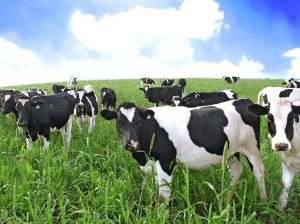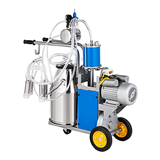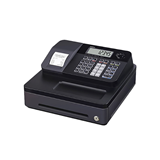The largest market is Japan, while China is the fastest growing. Australia’s largest dairy processor Murray Goulburn Co-operative Co Limited accounts for 33% of national milk output.
Best known for its Devondale brand of table spreads and long-life milk, the company is attempting to position itself to meet the emerging dairy needs of Asian countries. However, growth in dairy activity has not been without its hiccups. The past few years have demonstrated the susceptibility of dairy goods to large price swings.
A particularly harsh period for Murray Goulburn was 2008-09, when the combination of increased dairy supply from the United States and Europe, the global financial crisis and the Australian drought combined to result in an after-tax profit of only $794,000.
This record-low result showed stark contrast to Murray Goulburn’s financial performance for the previous year, when it achieved record after-tax profit of $86 million. The difference in the two years amounted to a sizeable drop in profit of 93%.
During 2007, Murray Goulburn expanded into China by establishing its first factory, and in 2010 it invested US$90 million in the construction of a second factory. The company also made public its intentions to build an emerging retail brand business in the Asia-Pacific region.
Murray Goulburn and other dairy companies expanding into new territories face significant competition from New Zealand dairy exporters, which account for 35% of world trade.
The world’s largest dairy cooperative, New Zealand-owned Fonterra Co-operative Limited, holds one-third of the global dairy market. Fonterra has experienced much success over the years, but was similarly affected by the poor market conditions stemming from the financial crisis.
Like Murray Goulburn, Fonterra has also positioned itself to capitalise on the strength of Asian markets, which make up 40% of the company’s total sales for dairy ingredients. In 2010, China was Fonterra’s largest market for dairy ingredient sales, and the company has built on this with a $30 million investment in a dairy farm located in Hebei province.
Globalisation of the Dairy industry has not just been a one-sided affair. Foreign companies have entered Australia to expand outside of their local market. For example, Parmalat is an Italian-based company that entered Australia’s liquid milk market in 1998 after acquiring Pauls Limited.
In 2007, Kirin Holdings Company Limited, a Japanese-owned conglomerate, acquired National Foods, a manufacturer of well-known brands like Pura, Dairy Farmers and Big M. IBISWorld estimates that National Foods’ market share of domestic milk and cream processing is about 46.1%.
The importance of establishing a presence within fast-developing Asian markets has not been lost on local exporters, and this will largely depend on future steps taken to develop international trade.
New Zealand’s free trade agreement with China came into effect in 2008, and will continue to have a significant influence over the competitiveness of Australian exporters. The Australian Government has initiated negotiations with several Asian countries regarding free trade agreements, but with limited progress.
Either way, local exporters will inevitably jump on the Asia bandwagon to meet the region’s growing dairy needs.



